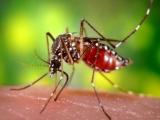The American Red Cross today said it is closely monitoring the spread of Zika virus and as a precaution is implementing a self-deferral policy for blood donors who have traveled to Mexico, the Caribbean, or Central or South America within 28 days of donating.
In other Zika virus developments, the US Centers for Disease Control and Prevention (CDC) added two more destinations—Jamaica and Tonga—to its Zika-related travel advisory for pregnant women, Brazil's microcephaly totals have increased, and an India company detailed two new vaccine candidates.
Potential impact on blood supply
In its statement today, the American Red Cross also asks those who develop symptoms of Zika virus infection within 14 days of donation to immediately notify the Red Cross so it can quarantine the blood.
The group said it and other blood collection agencies are working with the US Food and Drug Administration (FDA), the CDC, and state health departments to track the virus and update donor eligibility criteria as needed.
It said it has safety measures in place to protect the blood supply from Zika and other mosquito-borne pathogens and that the risk of contracting a Zika infection from blood transfusion is very low in the continental United States because of the absence of Zika virus in local mosquito populations.
The European Centre for Disease Prevention and Control (ECDC) had said in a Dec 10 risk assessment that although there have been no documented Zika infections from blood transfusion, 3% of asymptomatic blood donors were positive for the virus on polymerase chain reaction testing during French Polynesia's Zika outbreak in 2013 and 2014. The ECDC recommends that blood safety authorities consider deferral of donors who have histories of travel to areas of active Zika virus transmission.
Jamaica, Tonga added to travel advisory
The CDC today announced that it added two more destinations, Jamaica and Tonga, to its interim travel guidance for Zika virus.
The Pan American Health Organization (PAHO) added Jamaica to its list of affected countries on Feb 1 after the first cases were reported there.
Tonga has reported five Zika virus cases, with many more suspected, Radio New Zealand reported yesterday, citing a Radio Tonga report. Another Polynesian-region location, American Samoa, was added to the CDC's advisory on Jan 22.
The CDC has urged pregnant women to postpone travel to areas where Zika virus is circulating and for those considering getting pregnant to talk to their health providers before visiting affected nations.
Because of the rapidly evolving situation and unknowns about the transmission area, the CDC said it will update the travel advisory when it has more information.
Since it posted its initial guidance covering 14 countries and territories on Jan 15, the agency has added 16 destinations, lifting the total to 30.
Suspected microcephaly total grows
Brazil's health ministry said it has received reports of about 600 more suspected cases of microcephaly, a condition of smaller-than-normal heads in newborns. But it has also ruled out a number previous cases, according to a statement translated and posted by Avian Flu Diary, an infectious disease news blog.
Officials are still investigating 3,670 suspected microcephaly cases, having now confirmed 404 instances of the birth defect or other central nervous system disorders and ruling out 709 as of Jan 30, according to the ministry, which put the cumulative number of reports at 4,783.
Though the link between Zika virus and Brazil's steep rise in microcephaly cases hasn't been proven, and questions abound about its background number of such cases, concerns about a possible connection have been high enough to trigger a global public health emergency, along with warnings for pregnant women and those trying to become pregnant.
Brazil's health ministry pointed out that microcephaly has links to other causes aside from Zika virus infection.
So far the confirmed microcephaly cases have been reported from 156 cities in nine of Brazil's states.
Two new vaccine candidates
Bharat Biotech, a pharmaceutical company based in Hyderabad, India, announced today that it has two Zika vaccine candidates, a recombinant vaccine and an inactivated vaccine that is ready to begin preclinical trials in animals, according to a statement from the company.
The firm said it began exploring a Zika virus vaccine a year ago, because the disease's early clinical features resemble dengue and chikungunya. Bharat Biotech also has a chikungunya vaccine that is slated to enter phase 1 trials soon.
The company said it is scaling up enough vaccine for preclinical trials, having achieved consistency for process development. It added that it is developing a recombinant vaccine using the surface antigens of the Zika virus.
Bharat Biotech said its vaccines have an "early mover" advantage and that it may be the world's first to file a global patent for Zika vaccine candidates.
A host of other groups have also signaled their intentions to develop Zika vaccines, including the US National Institutes of Health, Sanofi Pasteur, GlaxoSmithKline, and a consortium that includes Inovio Pharmaceuticals.
See also:
Feb 3 American Red Cross statement
Dec 10, 2015, ECDC rapid risk assessment for Zika virus
Feb 2 Radio New Zealand report
Feb 3 Avian Flu Diary post
Feb 3 Bharat Biotech press release





















